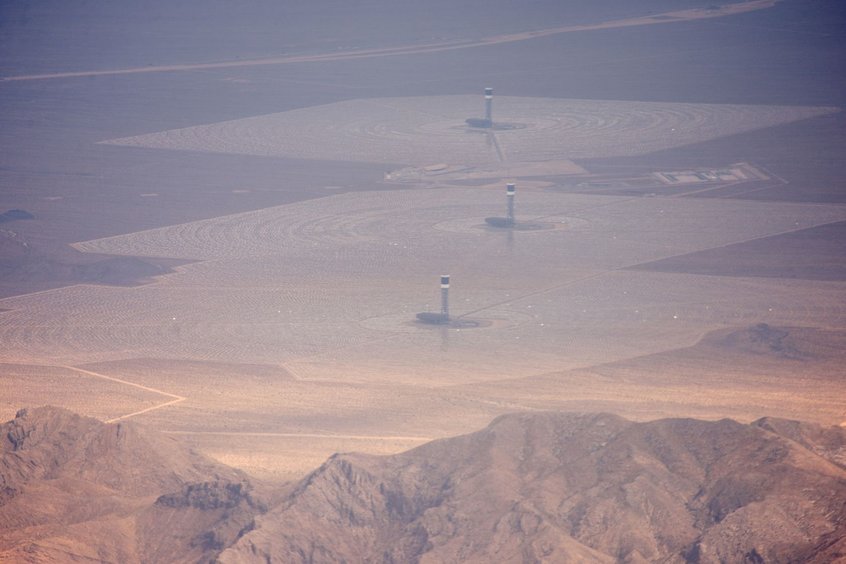Fresh plans have been announced for the construction of a 100-square-kilometre solar power plant in the Tunisian desert to produce electricity for Europe.
The backers of the TuNur concentrated solar power (CSP) facility say it will produce 2GW of electricity, five times more than the 392MW Ivanpah plant in California (pictured), the present holder of the largest solar title, and more than the current total national output of Tunisia.
This is not a back-of-the-envelope fantasy, this is a serious project– Kevin Sara, TuNur
The claim is that the plant will provide power for 2 million European homes.
The idea for the plant is not a new one – it was reported by GCR last year as part of a wider plan to exploit Saharan sunshine for the benefit of a trans-European supergrid.Â
At that time it was being promoted by a German foundation called the Desertec Industrial Initiative (Dii), which had ambitious plans to build CSPs across the Sahara.
This project foundered in the face of what Thiemo Gropp, Desertec’s director, called “extreme challenges”.Â
But now the idea of the Tunisian plant has been taken up by the UK solar power developer Nur Energie, which was part of the original Dii, together with a group of British, Tunisian and Maltese investors including Low Carbon, Glory Clear Energy and Top Oilfield Services. Nur has a range of solar power projects under development in southern Africa and the Maghreb.

The Ivanpah condensing solar plant, which is less than 20% the size of the proposed TuNur development (Craig Butz/Wikimedia Commons)
The project, which is currently undergoing regulatory scrutiny in Tunisia, is set to reach financial close and start construction in 2016.Â
Nur Energie says it has already spent $13m on preparing the site. It has also signed an agreement with an Italian network operator to lay a 450km cable under the Mediterranean Sea.Â
Daniel Rich, the chief operating officer of Nur Energie, said: “This might seem like quite an extreme project, but the technology is all proven. We have identified a site, conducted a feasibility study and lined up potential investors.”
Kevin Sara, chief executive of TuNur, made the same point to BBC News: “This is not a back-of-the-envelope fantasy, this is a serious project.”
He added that the TuNur’s plan were quite different from those of Dii. He said: “We are trying to realise a singular project whereas Desertec was an industrial consortium that was trying to develop an idea.”Â
Photograph: The Ivanpah condensing solar plant, which is less than 20% the size of the proposed TuNur development (Craig Butz/Wikimedia Commons)






